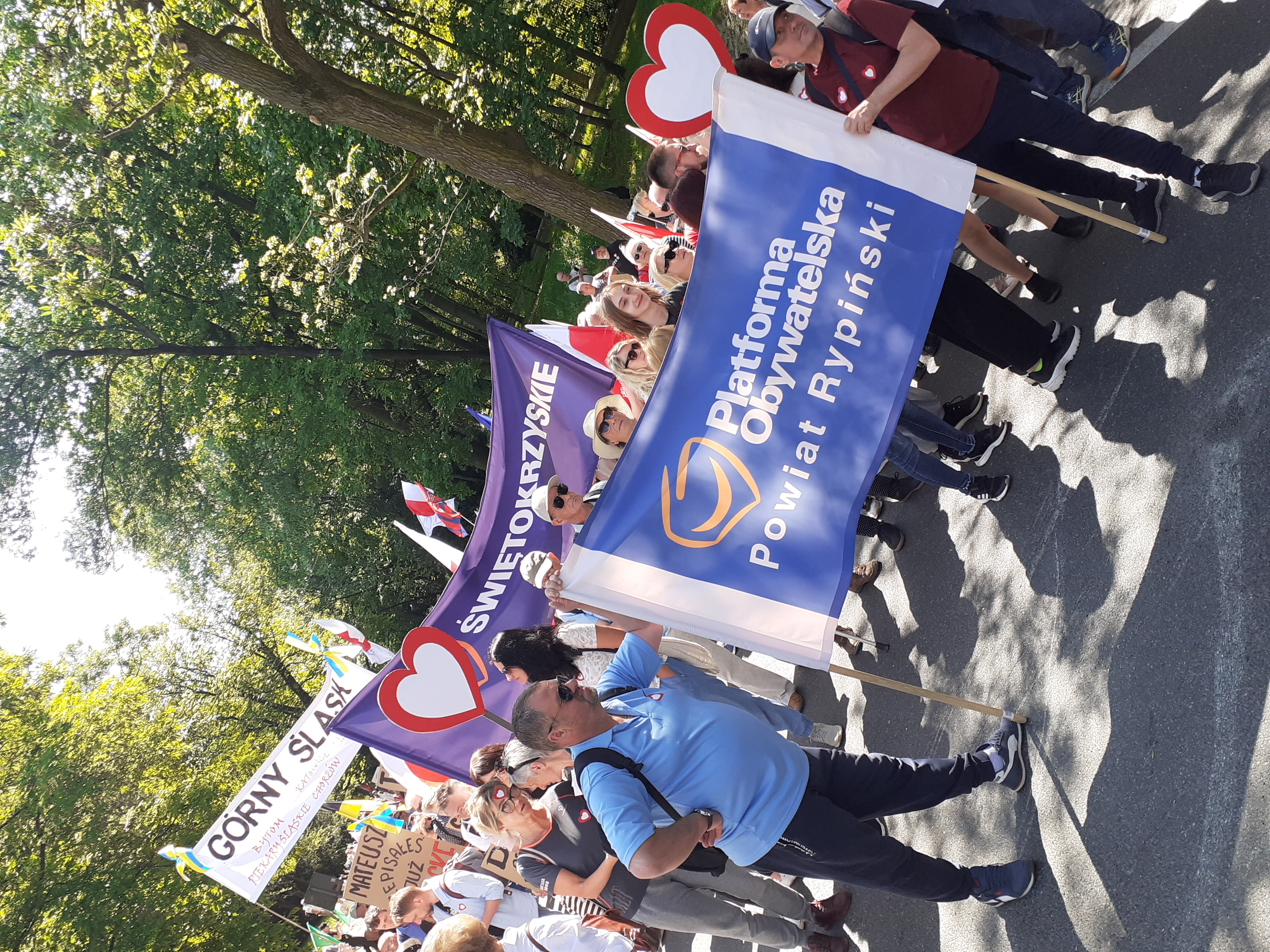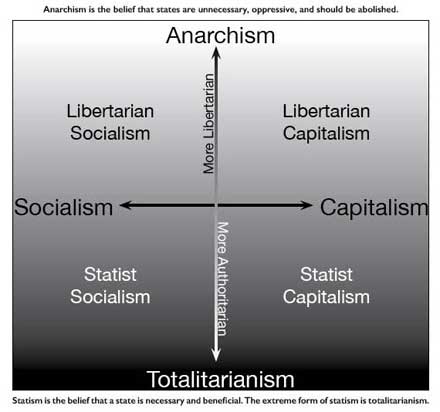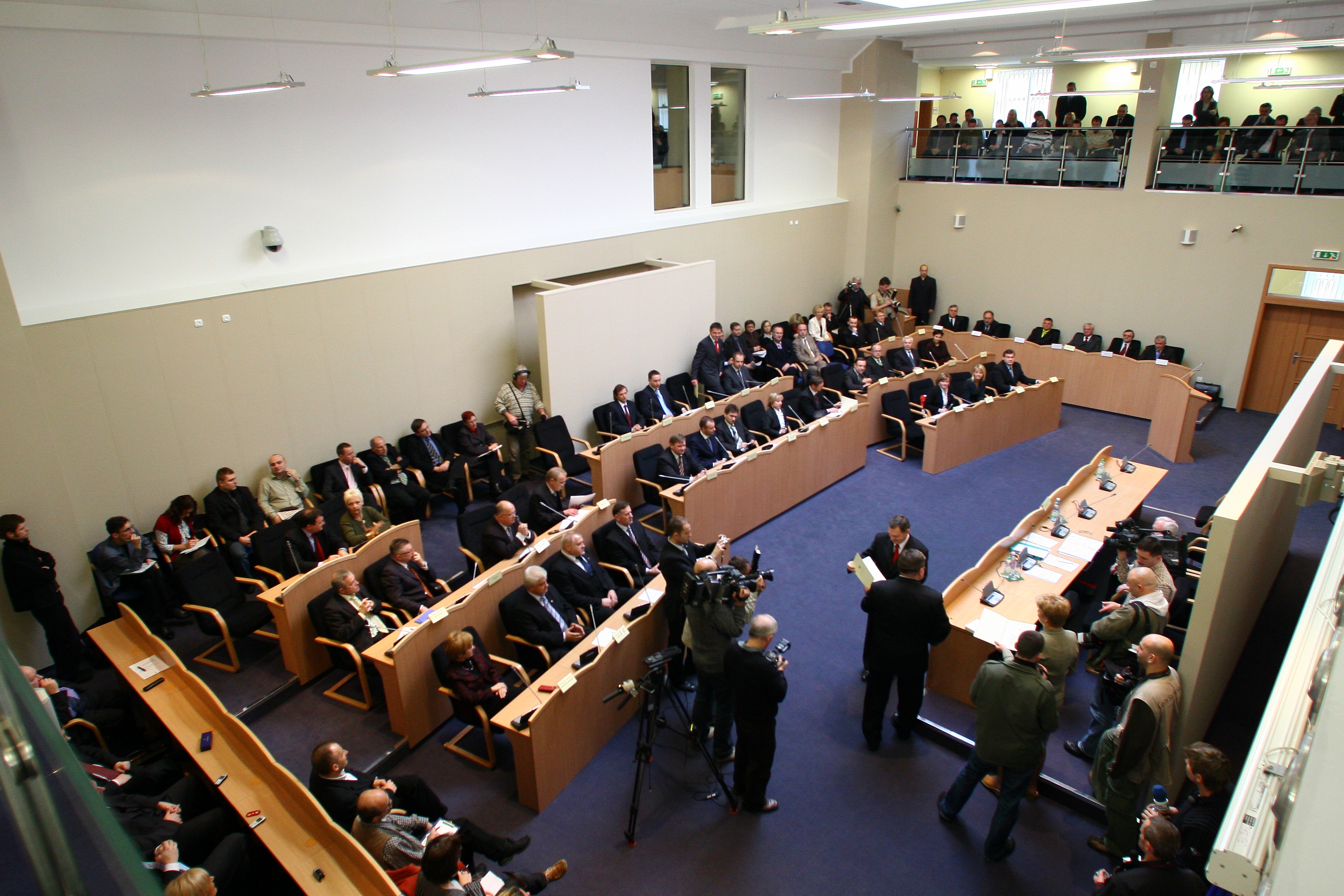|
Real Politics Union
The Real Politics Union (, UPR) is a national conservative and economically liberal political party in Poland. In the past it was right-libertarian and classical liberal. Popular support and funding UPR was founded in 1987 as the classic liberal Real Politics Movement by Janusz Korwin-Mikke, who later became its long-term leader. In the 1990s and 2000s, UPR consistently had the support of 1–2% of voters in general elections, too low to receive public funding under Polish electoral law. As a consequence, it has faced prolonged financial difficulties since its inception. In the 1991 legislative election, the party won 3 seats. In the parliamentary election in 2001, the UPR candidates started from lists of Civic Platform to Sejm. To the Senate both parties joined centre-right coalition Senate 2001 with other post-Solidarity parties. UPRs candidates commenced their political campaign from its short-lived satellite party ''Janusz Korwin-Mikke's Platform'' ("Platforma Janusza ... [...More Info...] [...Related Items...] OR: [Wikipedia] [Google] [Baidu] [Amazon] |
Janusz Korwin-Mikke
Janusz Ryszard Korwin-Mikke (; born 27 October 1942), also known by his initials JKM or simply as Korwin, is a Polish far-right politician, paleolibertarian and author. He was a member of the European Parliament from 2014 until 2018. He was the leader of the Congress of the New Right (KNP), which was formed in 2011 from Liberty and Lawfulness, which he led from its formation in 2009, and the Real Politics Union, which he led from 1990 to 1997 and from 1999 to 2003. He was the chairman of the party KORWiN until his resignation on 15 October 2022, and from 2019 to 2023 a member of the Sejm, elected from the electoral list of Confederation Liberty and Independence. Biography Birth and early life Janusz Korwin-Mikke was born in Occupation of Poland (1939–1945), German-occupied Warsaw on 27 October 1942. He was the only child of Ryszard Mikke (6 February 1911 – 25 April 1966) and Maria Rosochacka (3 April 1917 – 4 August 1944). His father, Ryszard, was the head of the ... [...More Info...] [...Related Items...] OR: [Wikipedia] [Google] [Baidu] [Amazon] |
2007 Polish Parliamentary Election
Parliamentary elections were held in Poland on 21 October 2007. All 460 members of the Sejm and 100 senators of the Senate were elected. The largest opposition group, Civic Platform (PO), soundly defeated the ruling Law and Justice (PiS) party and its allies. Throughout the campaign, polls showed conflicting results as to which of the two parties had the greater support, yet by the closing week the polls had swung in favour of Civic Platform. Three other political groups won the election into the Sejm, the centre-left Left and Democrats coalition, the agrarian Polish People's Party, and the tiny German Minority group. Law and Justice's former minor coalition partners, the League of Polish Families and the Self-Defense of the Republic of Poland suffered an enormous voter backlash, failing to cross the 5% electoral threshold in order to enter the Sejm. Consequently, both parties lost all of their seats. Early elections were called after the Sejm voted for its dissolution, due to ... [...More Info...] [...Related Items...] OR: [Wikipedia] [Google] [Baidu] [Amazon] |
Senate 2001
The Senate 2001 bloc () was an electoral alliance in Poland used by centre-right parties in the election to the Senate in 2001. It included post-Solidarity Electoral Action parties, who aimed to prevent domination of the Senate by the centre-left Democratic Left Alliance – Labor Union (SLD-UP). All of the component parties competed in the concurrent election to the Sejm separately (the Movement for the Reconstruction of Poland ran on the ticket of the League of Polish Families). The parties involved in the alliance were: * Solidarity Electoral Action (coalition of RS AWS, Agreement of Polish Christian Democrats and Christian National Union), a Christian democratic alliance led by Jerzy Buzek * Law and Justice (with Right Alliance), a national conservative party led by Lech Kaczyński * Civic Platform (with Real Politics Union and Conservative-People's Party), a liberal conservative party led by Maciej Płażyński * Movement for Reconstruction of Poland, a conservative ... [...More Info...] [...Related Items...] OR: [Wikipedia] [Google] [Baidu] [Amazon] |
Civic Platform
The Civic Platform (, PO)The party is officially the Civic Platform of the Republic of Poland (''Platforma Obywatelska Rzeczypospolitej Polskiej''). is a Centre-right politics, centre-right liberal conservative political party in Poland. Since 2021, it has been led by Donald Tusk, who previously led it from 2003 to 2014 and was President of the European Council from 2014 to 2019. It was formed in 2001 by splinter factions from the Solidarity Electoral Action, the Freedom Union (Poland), Freedom Union and the Conservative People's Party (Poland), Conservative People's Party, and it later placed second in the 2001 Polish parliamentary election. It remained at the opposition until the 2007 Polish parliamentary election, 2007 Polish parliamentary opposition, when it overtook Law and Justice, won 209 seats, and Tusk was elected as prime minister of Poland, Prime Minister of Poland. Following the Smolensk air disaster in 2010, Bronisław Komorowski served as acting president of Poland ... [...More Info...] [...Related Items...] OR: [Wikipedia] [Google] [Baidu] [Amazon] |
2001 Polish Parliamentary Election
Parliamentary elections were held in Poland on 23 September 2001. All 460 members of the Sejm and 100 senators of the Senate were elected. The election concluded with an overwhelming victory for the centre-left Democratic Left Alliance – Labor Union, the electoral coalition between the Democratic Left Alliance (SLD) and the Labour Union (UP), which captured 41% of the vote in the crucial lower house Sejm. The 2001 election is recognized as marking the emergence of both Civic Platform (PO) and Law and Justice (PiS) as players in Polish politics, while also witnessing the outright collapse of the Solidarity Electoral Action (AWS) and its former coalition partner, the Freedom Union (UW). Voter turnout for the 2001 election was 46% The 2001 election featured heavy redistricting owing to local government reforms passed in 1998. For this election only, list seats were allocated using the Sainte-Laguë method instead of the D'Hondt method. Background At the end of its four-year te ... [...More Info...] [...Related Items...] OR: [Wikipedia] [Google] [Baidu] [Amazon] |
Classic Liberal
Classical liberalism is a political tradition and a branch of liberalism that advocates free market and laissez-faire economics and civil liberties under the rule of law, with special emphasis on individual autonomy, limited government, economic freedom, political freedom and freedom of speech. Classical liberalism, contrary to progressive branches like social liberalism, looks more negatively on Social policy, social policies, taxation and the state involvement in the lives of individuals, and it advocates deregulation. Until the Great Depression and the rise of social liberalism, classical liberalism was called economic liberalism. Later, the term was applied as a retronym, to distinguish earlier 19th-century liberalism from social liberalism. By modern standards, in Liberalism in the United States, the United States, the bare term ''liberalism'' often means social or progressive liberalism, but in Liberalism in Europe, Europe and Liberalism in Australia, Australia, the bare ... [...More Info...] [...Related Items...] OR: [Wikipedia] [Google] [Baidu] [Amazon] |
Classical Liberal
Classical liberalism is a political tradition and a branch of liberalism that advocates free market and laissez-faire economics and civil liberties under the rule of law, with special emphasis on individual autonomy, limited government, economic freedom, political freedom and freedom of speech. Classical liberalism, contrary to progressive branches like social liberalism, looks more negatively on social policies, taxation and the state involvement in the lives of individuals, and it advocates deregulation. Until the Great Depression and the rise of social liberalism, classical liberalism was called economic liberalism. Later, the term was applied as a retronym, to distinguish earlier 19th-century liberalism from social liberalism. By modern standards, in the United States, the bare term ''liberalism'' often means social or progressive liberalism, but in Europe and Australia, the bare term ''liberalism'' often means classical liberalism. Classical liberalism gained full flow ... [...More Info...] [...Related Items...] OR: [Wikipedia] [Google] [Baidu] [Amazon] |
Right-libertarian
Right-libertarianism,Rothbard, Murray (1 March 1971)"The Left and Right Within Libertarianism". ''WIN: Peace and Freedom Through Nonviolent Action''. 7 (4): 6–10. Retrieved 14 January 2020.Goodway, David (2006). '' Anarchist Seeds Beneath the Snow: Left-Libertarian Thought and British Writers from William Morris to Colin Ward''. Liverpool: Liverpool University Pressp. 4. "The problem with the term 'libertarian' is that it is now also used by the Right. ..In its moderate form, right libertarianism embraces ''laissez-faire'' liberals like Robert Nozick who call for a minimal State, and in its extreme form, anarcho-capitalists like Murray Rothbard and David Friedman who entirely repudiate the role of the State and look to the market as a means of ensuring social order".Carlson, Jennifer D. (2012). "Libertarianism". In Miller, Wilburn R., ed. ''The Social History of Crime and Punishment in America''. London: Sage Publicationsp. 1006. . also known as libertarian capitalism, or righ ... [...More Info...] [...Related Items...] OR: [Wikipedia] [Google] [Baidu] [Amazon] |
Economically Liberal
Economic liberalism is a political and economic ideology that supports a market economy based on individualism and private property in the means of production. Adam Smith is considered one of the primary initial writers on economic liberalism, and his writing is generally regarded as representing the economic expression of 19th-century liberalism up until the Great Depression and rise of Keynesianism in the 20th century. Historically, economic liberalism arose in response to feudalism and mercantilism. Economic liberalism is associated with markets and private ownership of capital assets. Economic liberals tend to oppose government intervention and protectionism in the market economy when it inhibits free trade and competition, but tend to support government intervention where it protects property rights, opens new markets or funds market growth, and resolves market failures. An economy that is managed according to these precepts may be described as a liberal economy or operatin ... [...More Info...] [...Related Items...] OR: [Wikipedia] [Google] [Baidu] [Amazon] |
National Conservative
National conservatism is a nationalist variant of conservatism that concentrates on upholding national and cultural identity, communitarianism and the public role of religion. It shares aspects of traditionalist conservatism and social conservatism, while departing from economic liberalism and libertarianism, as well as taking a more pragmatic approach to regulatory economics and protectionism. It opposes the basic precepts of enlightenment liberalism such as individualism and the universality of human rights, and in America and Europe is majoritarian populist. National conservatives usually combine conservatism with nationalist stances, emphasizing cultural conservatism, family values and opposition to illegal immigration or opposition to immigration per se. National conservative parties often have roots in environments with a rural, traditionalist or peripheral basis, contrasting with the more urban support base of liberal conservative parties. In Europe, national conservat ... [...More Info...] [...Related Items...] OR: [Wikipedia] [Google] [Baidu] [Amazon] |
Voivodeship Sejmik
A voivodeship sejmik (), also known as a provincial or regional assembly, is the regional-level elected legislature for each of the sixteen voivodeships of Poland. Machnikowski et al., p. 21 Sejmiks are elected to five-year terms, decided during nationwide local elections. The size of the legislative assembly varies for each voivodeship depending on the population, ranging from 30 members in lesser populated provinces to 51 members in the most populous one. Elected representatives of an assembly are known as councillors (''radni''). Origins The word '' sejmik'' is a diminutive of ''sejm'', a historical term for an assembly of nobles, and is now the name of the lower house of the Polish National Assembly. The word ''sejmik'' was consciously chosen by lawmakers during regional reorganization reforms in the 1990s to eliminate the term ''rada wojewódzka'' (voivodeship council), as the definition conjured memories of people's councils during the communist People's Republic of Poland ... [...More Info...] [...Related Items...] OR: [Wikipedia] [Google] [Baidu] [Amazon] |





